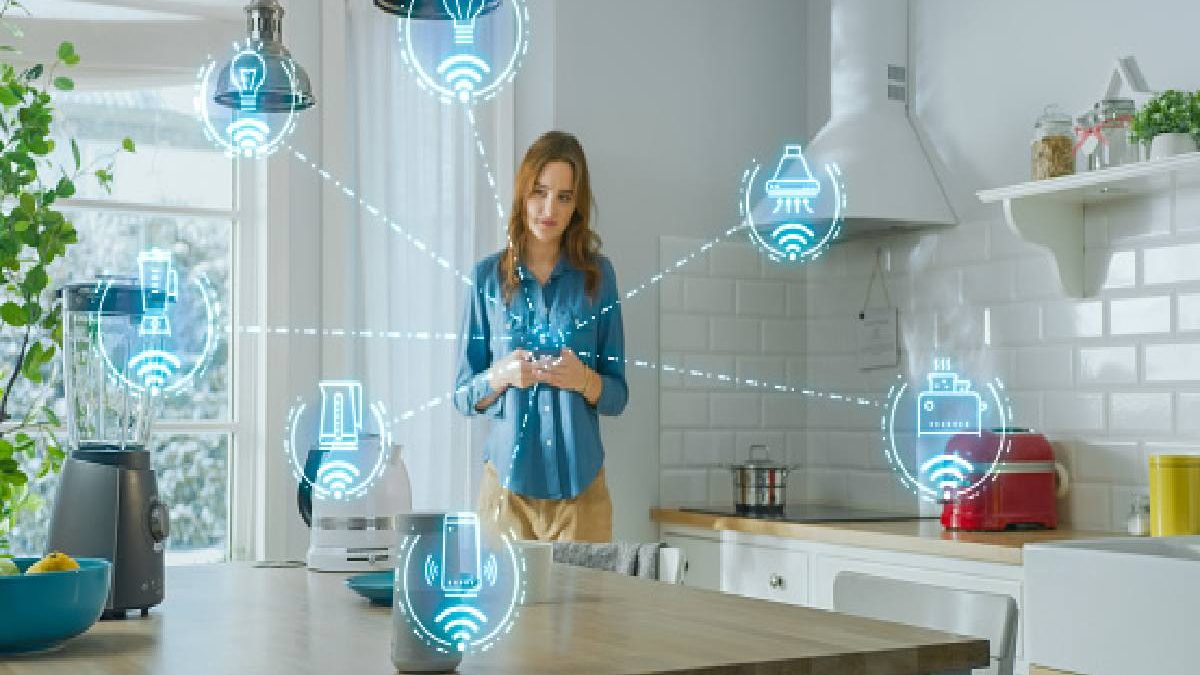Artificial Intelligence in Everyday Life – Artificial intelligence and its development have been an unprecedented advance in technology and the evolution of society. This is gradually changing all areas of our lives, and our home is no exception. However, we still have a lot to discover, and the most surprising is yet to come regarding artificial intelligence in everyday life and applied to the home.
Table of Contents
What is Artificial Intelligence?
In order not to go overboard with technicalities, we could say that artificial intelligence is a process that allows machines and devices to “think” for themselves based on all the learning they acquire from collected data. Very briefly, we can say that there are 4 types of artificial intelligence:
1. Reactive Systems
It is the most significant primary type of artificial intelligence. It is based on an “action-reaction” and not on learning. That is, he lacks the “memory” that allows him to improve his subsequent decisions. An example could be a chess program: the intelligence knows how to use each piece, but it will not be able to see the opponent’s style of play.
2. Limited Memory
The artificial intelligence model bases its behavior on recent memory but does not save this information. For example, an autonomous car drives based on the behavior of the other vehicles on the road, but when it reaches its destination, it “forgets” this information.
3. Theory of Mind
This artificial intelligence model is still an idea for the future, although it is true that it is getting closer. According to this theory, machines could understand people’s feelings and emotions, acting accordingly. This would be vital in a scenario where humans and machines coexist.
4. Self-Awareness
The final step in the development of artificial intelligence would be self-awareness. That is to say, the moment in which the machines are aware of the environment and themselves, capable of understanding the feelings of others and their own. This is undoubtedly a still fantastic approach. Artificial intelligence’s evolution is much more focused on perfecting memory and, therefore, machine learning to be more effective.
Artificial Intelligence in Everyday life: The Smart Home
Applied to the home, artificial intelligence in everyday life is the one that learns about our habits day by day. In this way, it is more effective when organizing and carrying out tasks such as cleaning or maintenance. This is without the need to be programmed and acting automatically to guarantee our comfort at home. For example, artificial intelligence in your house could clean the floor when we are at work so as not to bother us. Or you could also place an order for food products that we usually consume before they run out.
The reality is that houses with applied artificial intelligence are becoming less rare. They are what we know as “domotic houses”: homes in which technology controls security systems, energy, access, communication, etc., always to guarantee the maximum comfort of the people efficiently.
At the moment, the closest and most common thing we can find (and what most of us can afford) are Smart devices—appliances with a more or less complex artificial intelligence, which we can connect to through our SmartPhone.
Connected Devices: A Way to Connect with your Home
Let’s see more explicit examples of appliances that use Artificial Intelligence in our daily lives to offer us a more intelligent home.
Speakers for Intelligent Voice Assistants
If a device has managed to convey that feeling of “artificial intelligence at home” that we have seen so many times in fiction, it has undoubtedly been the intelligent voice assistant. Pair a smart speaker with your voice assistant, be it Siri, Alexa, or Ok, and you can have almost coherent conversations. Very useful for making a shopping list, asking for your favorite song, or answering any questions about general culture.
Televisions
In addition to connecting to the Internet with its Smart function and thus accessing all its content, artificial intelligence allows many televisions to be used through voice.
Food Processors
If kitchen robots, already in their first models, made life much easier for us when it came to cooking, the most modern ones allow them to be controlled comfortably from the sofa through your mobile phone.
Air Conditioning
Air conditioning devices that guarantee intelligent energy consumption are becoming more and more common. For example, through the geolocation of the users’ smartphones, they will produce cold air only in rooms with people.
Vacuum Cleaners
Not only will you be able to control them with your Smartphone, but through technology based on sensors, a camera, and a laser system, they will clean your home without bumping into obstacles.
Also Read: Refresh your Home with New Smart Technology
Related posts
Featured Posts
Decathlon Sports STO – Overview, Products, Services and More
Decathlon Sports STO believes in putting their energy where they have the most impact. Their local communities sustainably experience the…
Networking – Brief Explanation
What is Networking? In the professional and business world, networking is the practice of making contacts, that is, meeting other…



